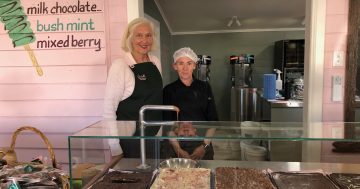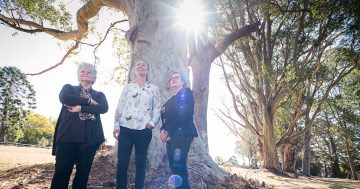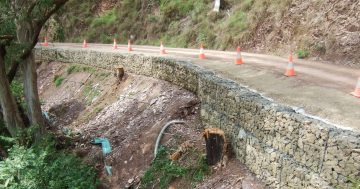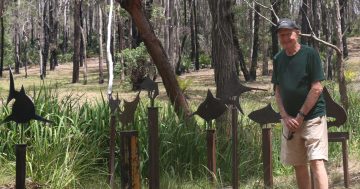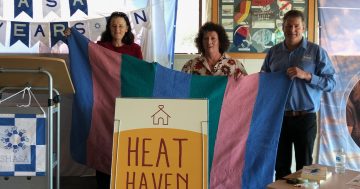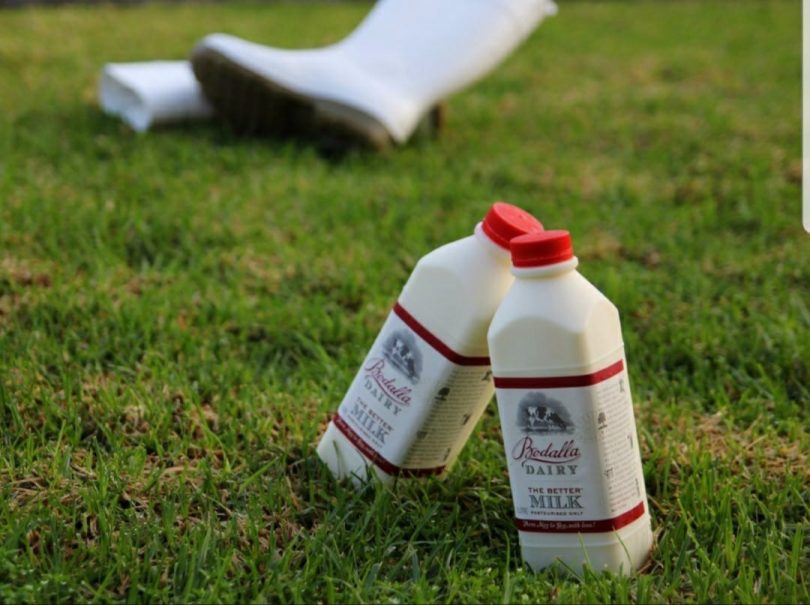
Bodalla Dairy has stopped milk processing following a dispute over wastewater quality from its Bodalla location. Photo: Bodalla Dairy.
Bodalla Dairy Shed has stopped its milk processing amid a dispute with a Far South Coast council over wastewater.
Owner and operator Sandra McCuaig said the news was heartbreaking.
“It’s just punitive and bureaucratic,” she said.
“There’s no turning back now because about 10 days ago, I had to tell all of the shops [that purchase Bodalla Dairy products] that we’re finishing up.”
The McCuaig family started bottling their milk locally and also opened the Bodalla Dairy Shed milk bar in 2008, with a cheese factory following in 2011. The family also operated an ice cream parlour in Woollahra from 2021.
Ms McCuaig said the closure was due to concerns around their on-site pasteurisation process.
“It is just milky water, which is left in the pipes when you finish the day [of production],” she said.
“It’s not offensive water in any way. It’s exactly the same quality as what every dairy produces twice a day.
“They [council] put it in a storage system and it’s not working terribly well.
“We’re the only factory, so they’ve decided to blame us for any clogged pipes they get and so on.”
An ESC spokesperson said an issue with Bodalla’s sewer system had been traced back to the dairy, which was “incapable of treating wastewater to a satisfactory level” and had “regularly and significantly exceeded the prescribed limits over a long period of time”.
Bodalla is one of several areas in Eurobodalla Shire to use a pressure sewerage system where individual properties pump their sewerage into street mains and on to treatment plants, according to Council’s website.
“The Bodalla sewerage scheme consists of individual onsite pods that act as miniature pump stations, transporting the wastewater to the Bodalla sewage treatment plant,” the spokesperson said.
“The main issue affecting these onsite pods from the discharge of dairy effluent is the oil and grease content which has caused the pumps to fail on a number of occasions.”
This build-up resulted in sewer overflows, remediation works and the increases to the wastewater’s pH damaging infrastructure, the ESC spokesperson said, with Council considering further compliance action and directing the business to ensure all wastewater was taken to a suitable facility.
Ms McCuaig said Eurobodalla Shire Council (ESC) had been “threatening” the business for months.
“They’ve been threatening us for about a year, saying ‘We want better quality [wastewater], we want to it to be exactly the same as the Sydney wastewater has to be’ and so on,” she said.
“We’ve just had to close it; we can’t continue on.”
She said the closure would see 20 people lose their jobs when they stopped milk production as of Tuesday (25 June).
“The Dairy Shed – the shop – will be just fine. It’ll still be there.
“We just will not have one litre and two litre bottles of Bodalla milk.”
The Dairy Shed Cafe, located on-site in Bodalla, could continue to discharge wastewater into Bodalla’s sewerage network under a separate consent, provided it followed council regulations, the ESC spokesperson said.







